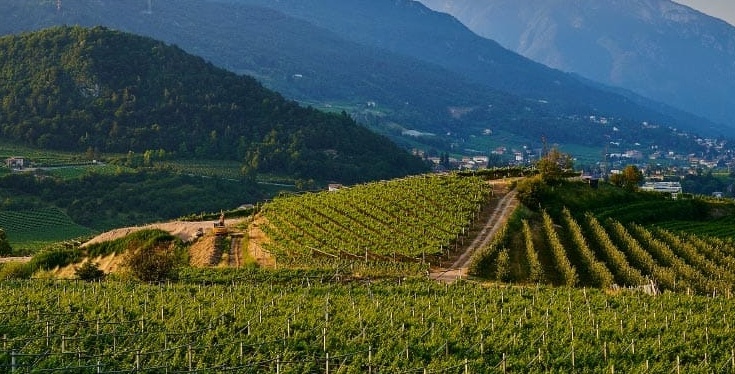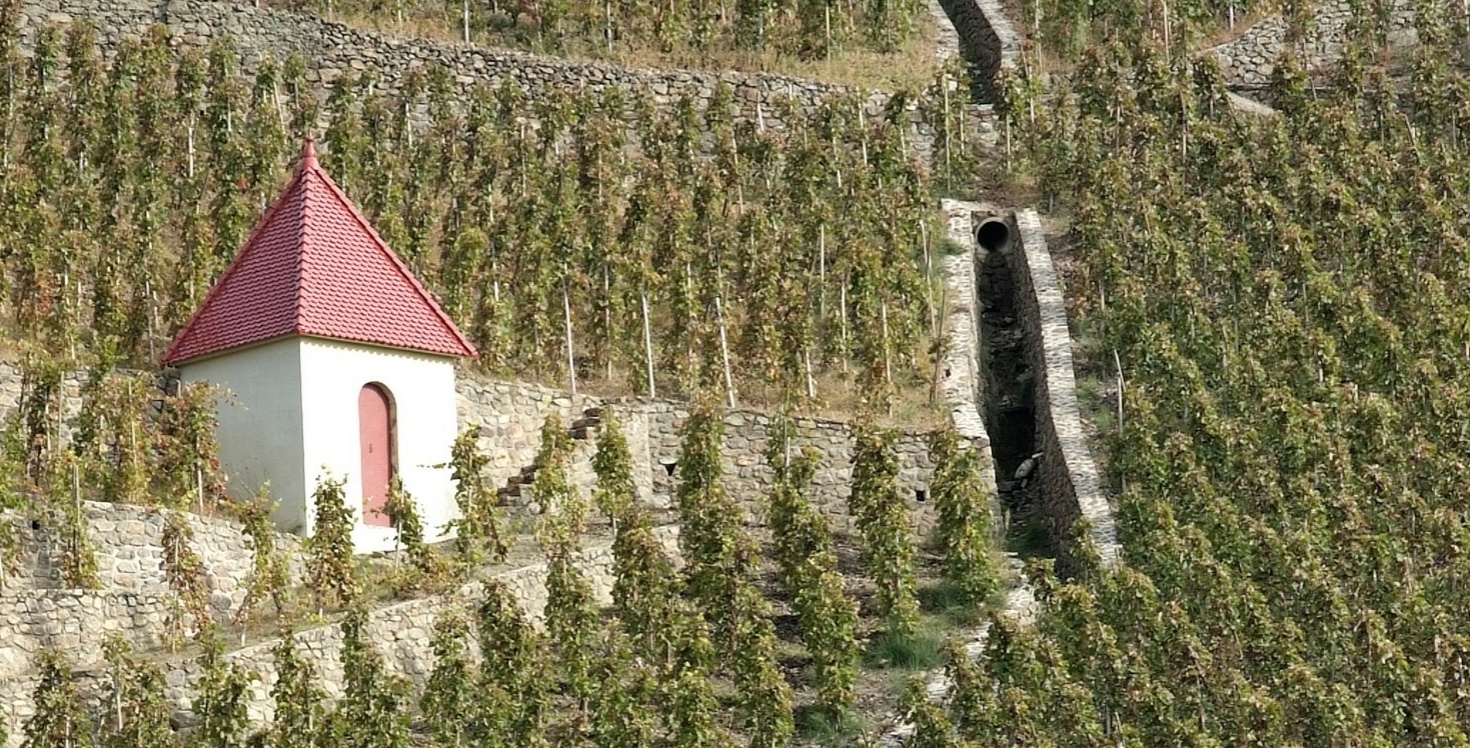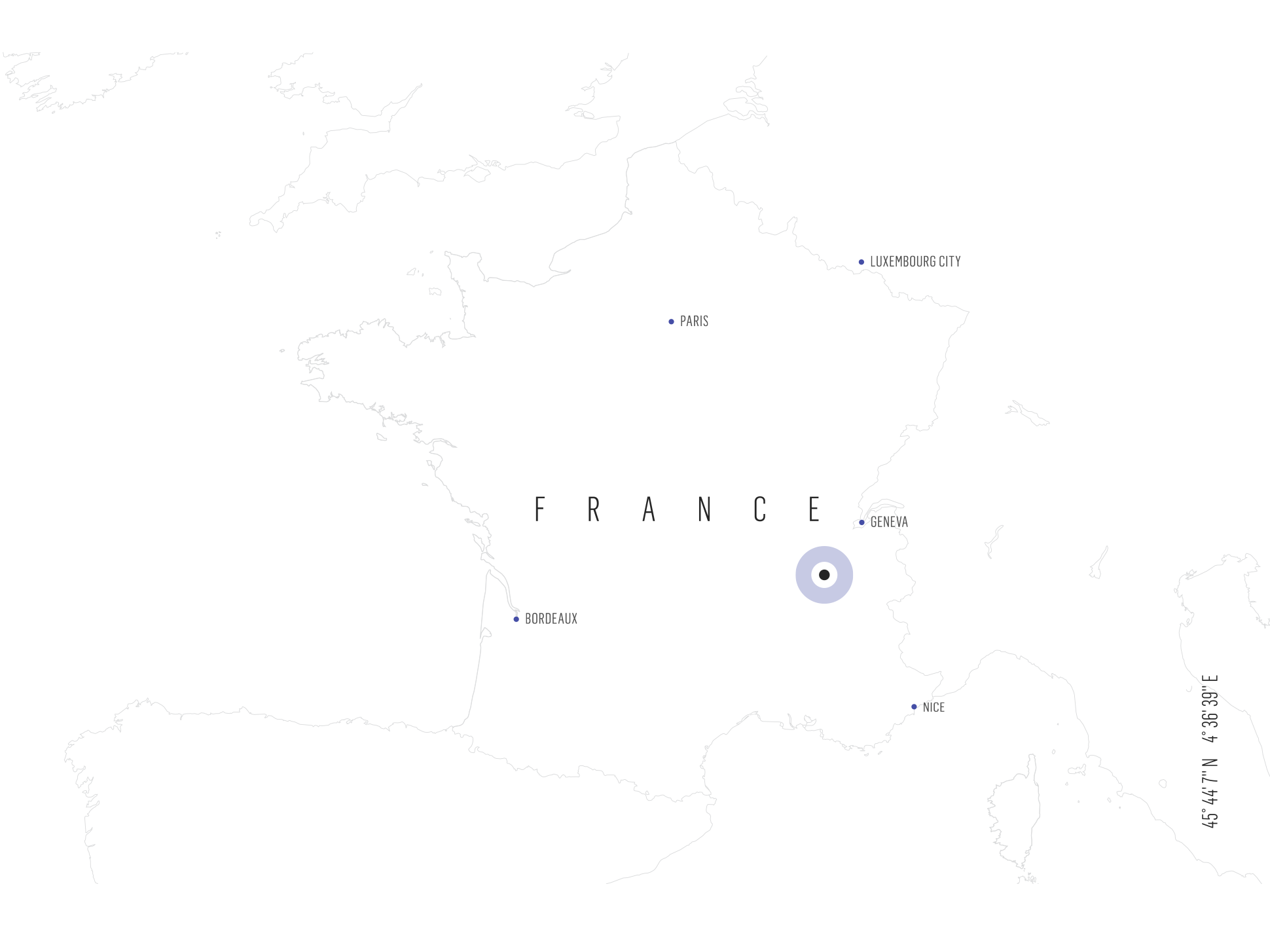
Northern Rhône, Southern Rhône-- what’s the difference? Although the two lay nestled within the same valley, the Northern and Southern Rhône are actually quite different. Get to know both components of this viticultural haven here, with our Rhône Valley explainer.
A Bit of Rhône Valley History
Rhône Valley vineyards span between the cities of Vienne (just south of Lyon) and Avignon. The Rhône River, along which many of the vines are cultivated, spans a whopping 505 miles, beginning in the Alps and draining into the Mediterranean Sea. It is said that viticulture began in the region around 600 BC, though the region really took off in the 13th Century, when the papacy was moved to Avignon. Today, the Rhône Valley is one of viticulture’s most important regions, producing an impressive 4 million hectolitres of wine annually.
NORTHERN VS. SOUTHERN RHONE
One of the biggest differences between Northern and Southern Rhône wines is the grape varieties used.
Grape Varieties
The Northern Rhône is dominated by red wine production, produced solely from the Syrah variety (occasionally co-fermented with regional white varieties.) White wines are produced in very small quantities from the Marsanne, Roussanne, and Viognier grapes.

Syrah - Among the world’s greatest red-wine grapes reaching its violet-scented peppery zenith in Northern Rhone
The Southern Rhône is all about the blends, with Grenache dominating vineyard plantings. GSM blends, comprised of Grenache, Syrah, and Mourvedre, are most common, though dozens of other red varieties are planted, including Carignan, Cinsault, Counoise, and more. And while Marsanne, Roussanne, and Viognier are also prevalent in the Southern Rhone, additional white varieties are permitted, including Clairette, Picpoul, Bourboulenc, and more.
Production
Although Northern Rhône wines tend to be more prestigious than those of the Southern Rhône (with the exception of the highly regarded wines of Châteauneuf-du-Pape), the Northern Rhône is responsible for less than 5% of wines produced in the region. That’s right-- over 95% of Rhône Valley wine production comes from the Southern Rhône!
Climate
The Northern Rhône experiences a more continental climate, with intense winters and warm summers. The Mistral wind heavily influences the region, blowing cooler air from the Massif Central into the region.
The Southern Rhône, on the other hand, experiences a more Mediterranean climate, with mild winters and very hot summers. The Mistral also affects the region; coupled with various terrains, a distinct variation of microclimates are created within the region.
Appellations
The Northern Rhône is comprised of eight appellations (from north to south):
- Côte-Rôtie
- Condrieu
- Château-Grillet
- Saint-Joseph
- Crozes-Hermitage
- Hermitage
- Cornas
- Saint-Péray

Southern Rhône appellations are:
- Côtes du Vivarais
- Coteaux du Tricastin
- Châteauneuf-du-Pape
- Vacqueyras
- Rasteau
- Cairanne
- Gigondas
- Vinsobres
- Lirac
- Beaumes de Venise
- Muscat de Beaumes de Venise
- Tavel
And of course, we can’t forget the two overarching appellations of Côtes du Rhône and Côtes du Rhône Villages. These appellations technically cover both Northern Rhône and Southern Rhône, though because the term(s) are generally applied when a higher appellation cannot be commanded, most Côtes du Rhône wines are produced in the Southern Rhône. These appellations are also commonly used by négociants; the blends of these wines tend to be Grenache dominant.

